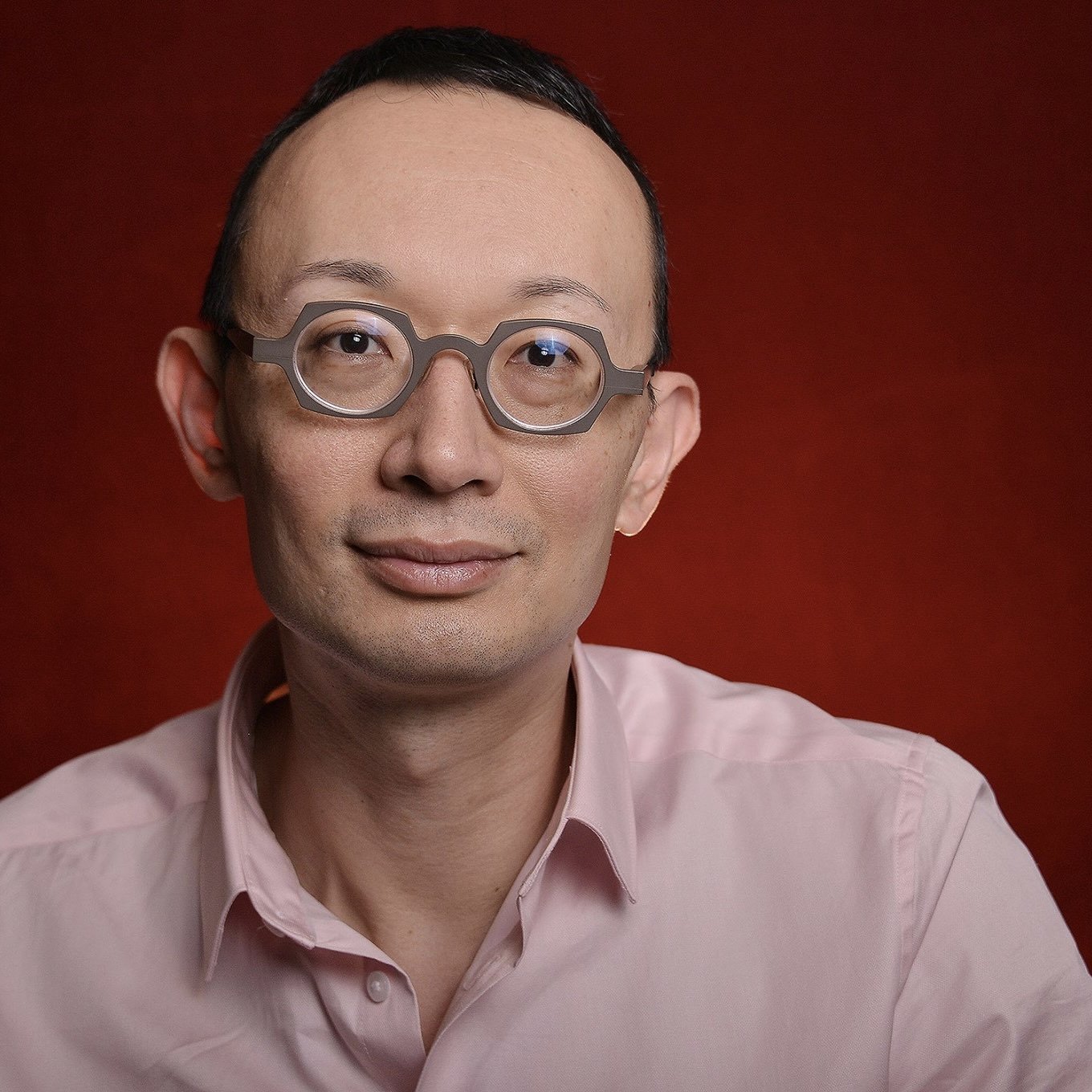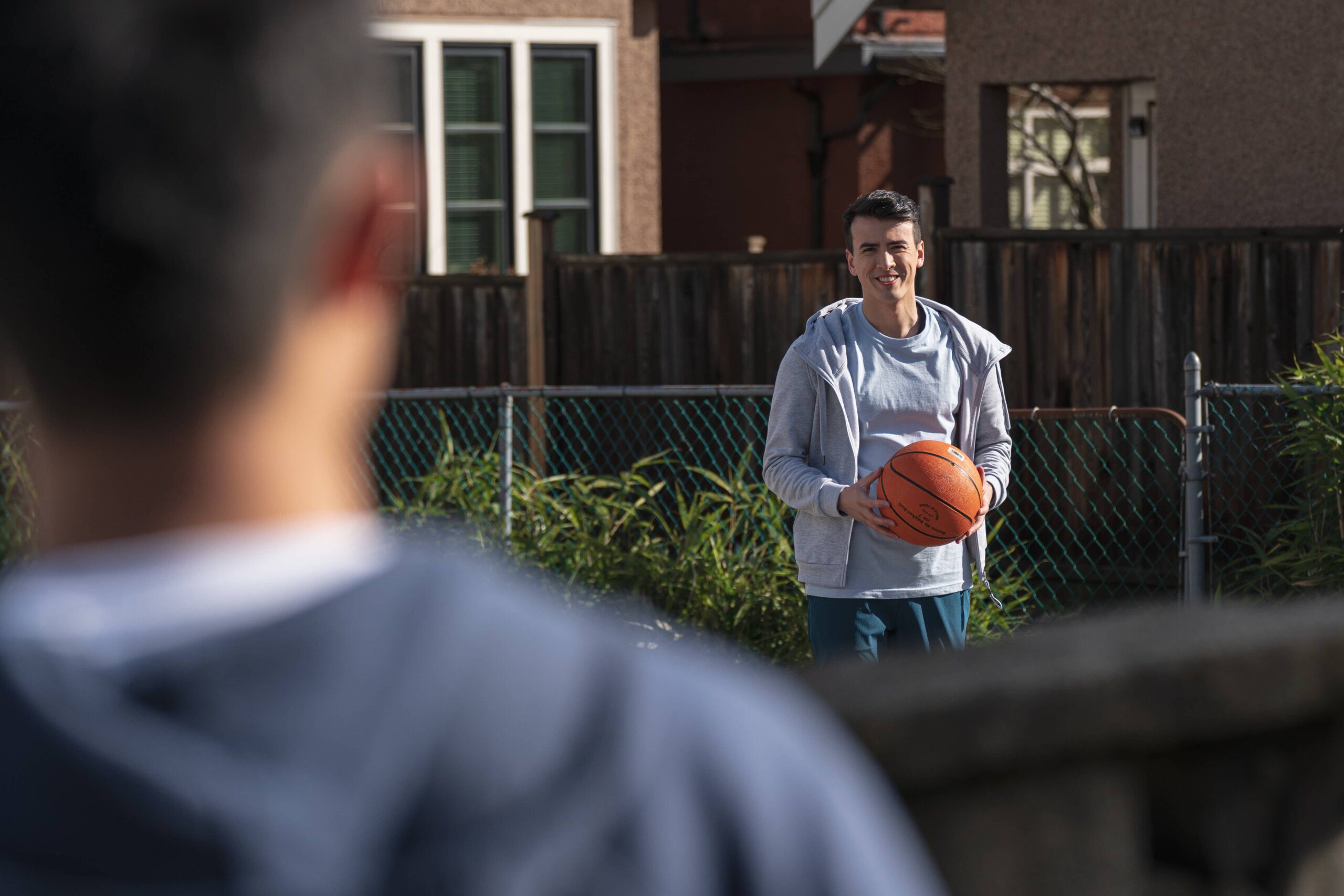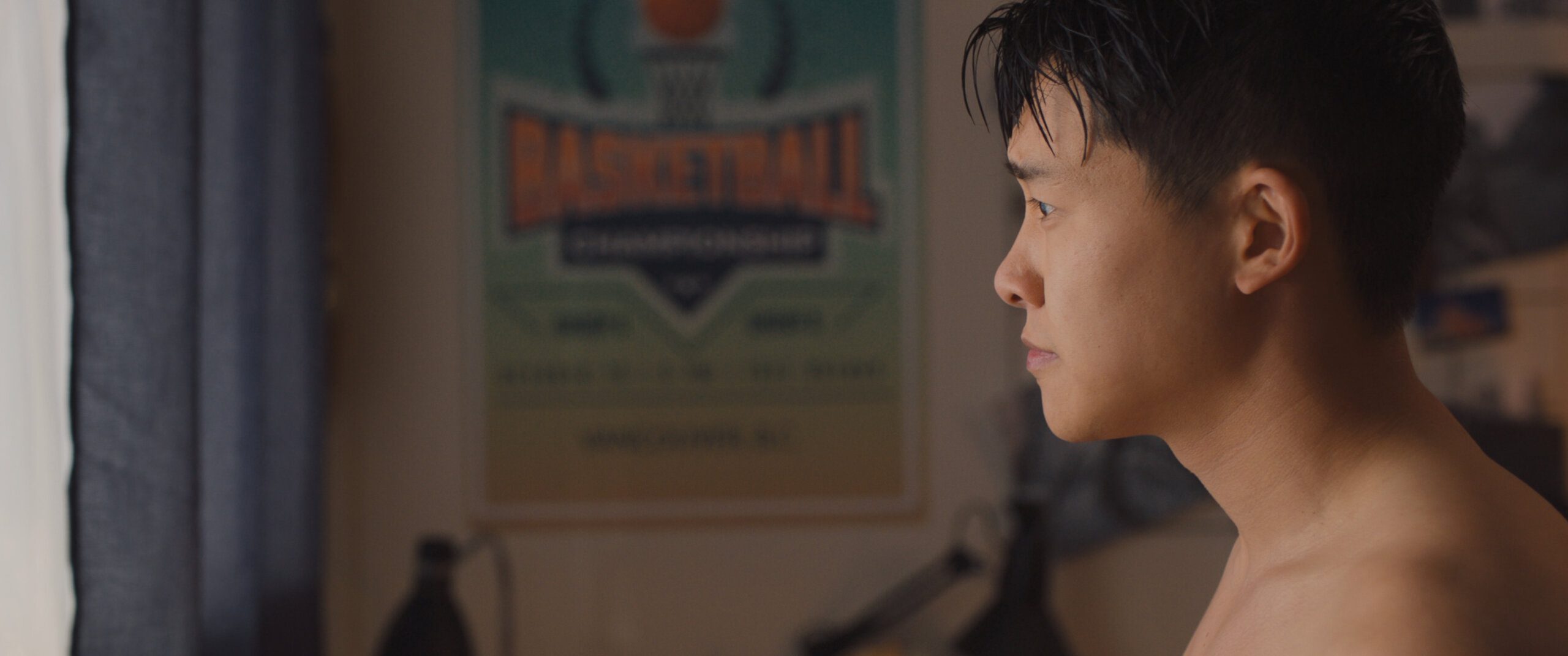For his feature directorial debut, Jason Karman wanted to make the film that his younger self always wanted to watch, but the Indonesian-Canadian director never could have imagined that it would take him the better part of a decade to turn that dream into reality.
In 2013, Karman met Gorrman Lee (The Order, Van Helsing) through Praxis, an organization dedicated to the development of Canadian screenwriters and filmmakers in British Columbia, and read an early draft of Lee’s screenplay about growing up in an Asian immigrant family.
“This was originally a straight coming-of-age story set in 1999. We did a version of that story in 2013; we applied for funding and it didn’t get greenlit,” reveals Karman. “In 2018, I felt ready to tackle my first feature, and I said, ‘I think, in order to make this work, it has to be a queer coming-of-age story.’ So I agreed to be a consultant and elaborate more on my contemporary queer adult life in order to better inform the story and make it authentic.”
Golden Delicious, which arrives in theatres across Canada on Sept. 15, follows Jake Wong (Cardi Wong), an endearing Chinese-Canadian teen who finds himself trying out for his high school’s basketball team to get closer to his new openly gay neighbour, Aleks Chen (Chris Carson). But after realizing that it isn’t a spot on the team that he really wants, Jake—who is already struggling to deal with the ever-changing expectations of his basketball fanatic father, George (Ryan Mah), and the desires of his longtime girlfriend, Valerie (Parmiss Sehat), to take their relationship to the next level—must reckon with his growing attraction to the boy next door and what kind of future he wants to chart for himself in the age of social media.
On a recent video call from their respective homes in Vancouver, Karman and Wong sat down with Xtra to discuss how Golden Delicious offers a fresh take on the classic coming-of-age sports story, the film’s exploration of young queer intimacy and the feedback that they have received from audiences who have connected with this culturally specific story.
Jason, you spent two and a half months auditioning hundreds of actors over Zoom during the first year of the pandemic. Can you pinpoint a specific quality in each of Cardi’s and Chris’s auditions that crystallized the vision you had for the characters?

Director Jason Karman. Credit: goldendeliciousfilm.com
JASON KARMAN: I didn’t know that Chris and Cardi knew each other, so I actually saw them independently. I had to choose somebody whom I felt could carry the film for two hours. Cardi had this vulnerability within him that I could pick up onscreen that I found compelling to watch. He obviously was able to take direction, had range, but it was this quality of vulnerability and curiosity that helped him land the part. On top of that, I bought into the fact that he could play a younger person; I know he’s a bit older, but I felt like we could get away with that.
Chris had this natural confidence about him, and he was unapologetic about expressing himself and being able to cry on demand. I thought that these were important qualities because the main [character] was searching for someone who could be in touch with their emotions, who could be confident with their sexuality, and I thought that Chris had those qualities. I brought them together, and lo and behold, they were super comfortable with one another intimately that I sometimes wonder whether or not there was more to this bromance. [Laughs.] They were my Jake and Aleks, naturally.
What do you think Jake sees in Aleks as a friend that lays the foundation for this burgeoning romance, and what do you think it is about Aleks that makes Jake feel comfortable enough to explore that attraction?
KARMAN: I think there’s a confidence and openness that he sees in Aleks that is refreshing, especially when he’s growing up in an Asian family where there are a lot of emotions being withheld. It’s comforting to know that somebody could be so open and in touch with their emotions—almost to the point of joking around with it. That approach can be very disarming and charming at the same time. It is a very attractive quality when somebody can be so open with themselves.
CARDI WONG: I think the entryway into [Jake’s] sexual awakening is probably through basketball. Before Aleks moved in, basketball felt like this annoying thing that he had to do every day. Jake’s not good at basketball. I’m not good at basketball. [Laughs.] So, to see Aleks be so comfortable in playing basketball, it’s an attractive sport [to Jake] now, something that he’s actually interested in. Aleks has this mature way of dealing with his own sexuality and this confidence in his body—these were all things that were like a little cold water along Jake’s neck that woke him up a little bit.
KARMAN: I think a lot of Asian men can appreciate or wish they had some sort of mentor when they were younger or when they were coming out. And Aleks is this much-needed mentor to Jake at this point in life.
Jason, you’ve previously spoken about this idea of double shame in the context of Jake: not only is he navigating his identity as a Chinese Canadian, but he is also forced to reckon with his own sexuality while attempting to live up to the ideals and expectations of the people around him. How did you want to find a way to bring Jake’s inner conflict to life?
WONG: I think more than anything, it is about getting that love and comfort for himself. Sure, you can try to get that love from other people and things, but ultimately none of that will sit properly unless you find that comfort for yourself within your own body.
KARMAN: I think there’s some lived experience within Cardi that he could draw from. I think the key was discussing role models and what the father figure means to Jake, and then what Aleks, as an alternate role model, means to Jake as well. Do you really want to live in an environment where there’s a lot of posturing, saving face and projecting? Talking in terms of those relationships with Cardi really helped crystallize when [Jake] was saving face and when he realized he had to change. I just find that the environment offered by Aleks is much more enriching and rewarding than by [Jake’s] dad anyway.
WONG: I came up with a metaphor: that throughout this whole movie, Jake is like a little small finch in a cage. So while this bird is singing his song and still flying, he’s still within the confines that society and his family has put him in. At the end of the movie, you can see if the bird is able to finally fly free and really flap his wings.
Cardi, if you wouldn’t mind elaborating on Jason’s earlier statement, what parts of this character’s coming-of-age story are analogous to some aspects of your own life?
WONG: I had a pretty rough relationship with my father. Maybe we were just cut from different cloths, and I wasn’t able to communicate any of that with him. I didn’t feel safe enough to communicate my needs and the comforts that I wasn’t getting from him. I feel like Asian men in the generation before us have this stoicism where they can’t show their heart; they weren’t really taught to show their heart.
For Jake and myself, [the scene where Jake eventually confronts his father] was really nice and therapeutic, and it just hit on all these things that I wish I could have told him. That’s probably where the lines blurred a little bit more between Jake and I.
KARMAN: I remember how everybody was so emotionally affected by that scene. Everyone on our crew who did not know what the story was about immediately understood because of that scene. I remember so many people crying and tearing up, and Cardi did an excellent job.
WONG: And then within my own sexuality, growing up with the media and everything, I’m trying to understand and trying not to rush through the process of whatever sexual discoveries I’m having. It’s all kind of uncomfortable, but we [all] go through it, not around it.

Aleks Chen as Chris Carson. Credit: Vortex Media Inc.
Jake immediately notices when Aleks moves in across the street, but they don’t actually meet until they literally crash into each other in the hallway on the first day of school. What did you want to convey when you were shooting that meet-cute scene?
KARMAN: I think the meet-cute moment, especially today for younger people, is so rare that when it happens, it is overwhelming. If you were to meet someone online, you could be more casual about it. But the chemistry is so strong here that it stays with Jake, and he just can’t help but start cyberstalking his new love interest. [Laughs.] In that moment when they run down the hallway, Jake finds himself being the inadvertent leader, showing the new kid around. That was a little bit ironic because he’s the one who’s a bit more inexperienced and lost.
WONG: I didn’t want to show the end of how things may shake out, so when we were working through it on the day, Jason would just be like, “Notice his hair a little bit on this shot. Take away the little things that you may see about him.” We did the crash scene way too many times. [Laughs.] By the end of it, I was so tired of bumping into Chris. We’re all holding stuff too, so it’d always be like, boom, boom, boom, okay, reset. But who doesn’t love a good run down the hallway in slow motion and it being a cute kind of thing?
At one point in the film, the sexual tension between Jake and Aleks comes to a head. There’s this foreplay and shifting power dynamic between them in the quiet moments when they first hook up, and it’s really refreshing to see a scene where young characters are given the space to literally breathe and discover new parts of themselves in relation to another person. What kinds of conversations went into shooting that scene in particular?
KARMAN: I worked with the principal intimacy coordinators Karyn Mott and Megan Gilron, and what they taught me was the language of permission and how beautiful it is when you have two people coming together and exploring their bodies for the first time. I think both in real life and in fiction, you have to set aside time and space for people to appreciate one another. We had those kinds of discussions about the meaning of Jake seeing a man fully naked for the first time. What does it mean to see a person in front of you who you’ve desired, who is fully naked and open and wanting you? It is extremely special to a young person.
WONG: We wanted it to feel nice, drawn out and sincere. We wanted to hit on the tenderness and the eye contact. It is his sexual awakening in that regard, so he couldn’t rush through it. The emotional stuff that came up for me that day, I did not intend at all, to be honest. I just wanted to make sure that the kissing looked good on camera. [Laughs.]
But with how everything looked, with the lighting, with the mood that is set, and just fully immersing myself in Jake at that time, it was just so pure and intimate. Everything you saw with his reaction was my reaction that day. I was just lucky the camera was rolling because the discovery happened right then and there, and it was one of my favourite acting moments I’ve ever gotten to experience. I think that’s what the goal is: you want to be able to surprise yourself.
Were there any improvised moments?
WONG: There is a little [moment] with a drawstring that happened on the fly. A sense of play just happened [laughs], and I’m like, “Oh, here we go. I guess we’re doing this shot.” There’s a line in there where Chris is like, “All right, cowboy!” That was also not scripted. The intimacy coordinators gave us these boundaries, and then with our understanding of our characters, we were able to add [improv] into whatever we were doing.
With this film, you’re specifically pushing back on the stereotype that Asian men can’t be sexy or desirable; you’re showing that queer Asian stories are not niche, that they can be universal in their depictions of identity and family.
WONG: Chris loves to talk about this as well—we grew up not seeing any Asian men in any leading roles where they could be deemed attractive or sexy. So I think he was a huge advocate for it, and that’s why he puts so much work into it, and God bless him for doing so amazing in this movie.
KARMAN: My approach was to try to distill it into some universal desires that I think all humans have: to be happy, to be loved, to be desired. And then when I was working with Gorrman, we were aware about shame and how that permeates a lot of our actions and our interpretations of things [as Asian men], like, why can’t we ask for the moon? Why can’t we reach for the stars? Why can’t the out gay kid today be confident, be the jock, be sexy? In the past, we’ve always been second or “othered” or not worthy enough, so that’s why a lot of people found Aleks to be so refreshing because he had those qualities and wasn’t willing to settle.
I noticed that you also used the plot device of exploring relationships through comparisons; you have Jake’s fracturing relationship with his girlfriend that parallels the deterioration of his parents’ marriage.
KARMAN: That was very intentional. I was using comparisons as a way to kick up hidden meaning within Jake’s life. And in doing so, I hope that the audience could also compare their relationships with what they’re seeing. I think that’s why a lot of audience members, especially queer Asians, are affected emotionally. They could see their relationships with their own family members up onscreen and [ask themselves], “Do I have that, or do I not have that?”
It’s already been almost a year since Golden Delicious premiered at the Vancouver International Film Festival. What kind of other feedback have you received from queer Asian viewers and audiences in general?
WONG: I’ve done Q&As where people have come up to me, and I see in their eyes how much the movie affected them and how much they needed this growing up. We’ve had young people come up, and the experience is happening for them right then and there. Those experiences, although they’re highly emotional and sensitive, are why we did this movie.
We want to do it for people who don’t and didn’t feel like they belong in their own skin. I think everyone that was a part of that crew relates to the idea of not feeling like enough for people and for yourself. Our movie is just there to make you feel comfortable, to make you feel like you can express yourself; this movie is for people who wish that they could have said the things that I said to my friends and family and to my parents. This movie is about loving yourself.
This interview has been edited and condensed for clarity.


 Why you can trust Xtra
Why you can trust Xtra


